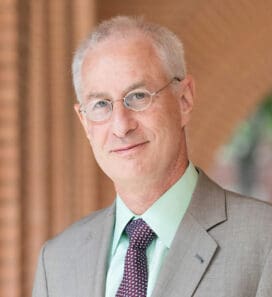Faculty

Pinchas Cohen, MD
Distinguished Professor of Gerontology, Medicine and Biological Sciences
Dean, USC Leonard Davis School of Gerontology
William and Sylvia Kugel Dean’s Chair in Gerontology
Executive Director, Ethel Percy Andrus Gerontology Center
Education
- Postdoctoral training, Stanford University, 1986-1992
- MD, Faculty of Medicine, Technion, Haifa, Israel, 1986
Research
- Unraveling processes related to aging, diabetes, neurodegeneration, and cancer
- The emerging science of mitochondrial-derived peptides including,
1. humanin, a peptide encoded from the mt-16S-rRNA which is a novel, centrally acting, insulin sensitizer and metaboloprotective factor representing a new therapeutic and diagnostic target in aging, diabetes and related disease
2. MOTS-c, a second peptide encoded from a small ORF in the 12S region of the mitochondrial chromosome, that has potent anti-diabetes and anti-obesity effect, acting as an exercise-mimetic
3. SHLP2, a peptide encoded from the light strand of the mt-16S-rRNA region whose levels correlate with prostate cancer
Overview
Pinchas Cohen, MD, is the dean of the USC Leonard Davis School of Gerontology, executive director of the Ethel Percy Andrus Gerontology Center, and holder of the William and Sylvia Kugel Dean’s Chair in Gerontology. He is an expert in the study of mitochondrial peptides and their possible therapeutic benefits for diabetes, Alzheimer’s, and other diseases related to aging. Cohen also holds joint appointments at the Keck School of Medicine of USC and in the Department of Biological Sciences at the USC Dornsife College of Letters, Arts and Sciences.
Cohen’s current research focus is on the emerging science of mitochondria-derived peptides, which he discovered. These peptides include humanin, a 24-amino acid peptide encoded from the mt-16S-rRNA. It is a novel, centrally acting insulin sensitizer and metaboloprotective factor representing a new therapeutic and diagnostic target in diabetes and related disease. Other mitochondrial peptides of interest include MOTS-c, a second peptide encoded from a small ORF in the 12S region of the mitochondrial chromosome that has potent anti-diabetes and anti-obesity effect and acts as an exercise-mimetic, and SHLP2, a peptide encoded from the light strand of the mt-16S-rRNA region whose levels correlate with prostate cancer.
He has received numerous awards for his research, including a National Institute of Aging “EUREKA” Award and the National Institutes of Health Director Transformative RO1 Grant. He also recently received the American Federation of Aging Research Irving S. Wright Award of Distinction and the Glenn Award for Research in Biological Mechanisms of Aging. Cohen is a past president of the Growth Hormone Society and has served on the Endocrine Society Steering Committee. He sits on multiple NIH study sections and on several editorial boards as well as on the American Federation of Aging Research Board. He also holds several patents for novel peptides and is the cofounder of CohBar, a biotechnology company developing mitochondrial peptides for diabetes.
As dean, Cohen is leading several new initiatives at the USC Leonard Davis School, including a major focus on the creation of tools for “personalized aging,” an approach using technologies such as genomics towards individualizing healthy aging strategies, which has been featured in the Milken Global Conference and in the Bloomberg Longevity Economy Conference. He also leads the Ensuring Lifespan Health initiative at USC.
Prior to his arrival at USC in 2012, he was a professor and vice chair for research at the Mattel Children’s Hospital at UCLA as well as the co-director of the UCSD/UCLA Diabetes Research Center. He completed his postdoctoral training at Stanford and held his first faculty position at the University of Pennsylvania from 1992 to 1999. He earned an MD in 1986 at the Technion in Haifa, Israel.
Email: gerodean@usc.edu
Office Location: GER 103b
Office Phone: (213) 740-1354
Fax: (213) 740-5694
Lab: Cohen Lab

